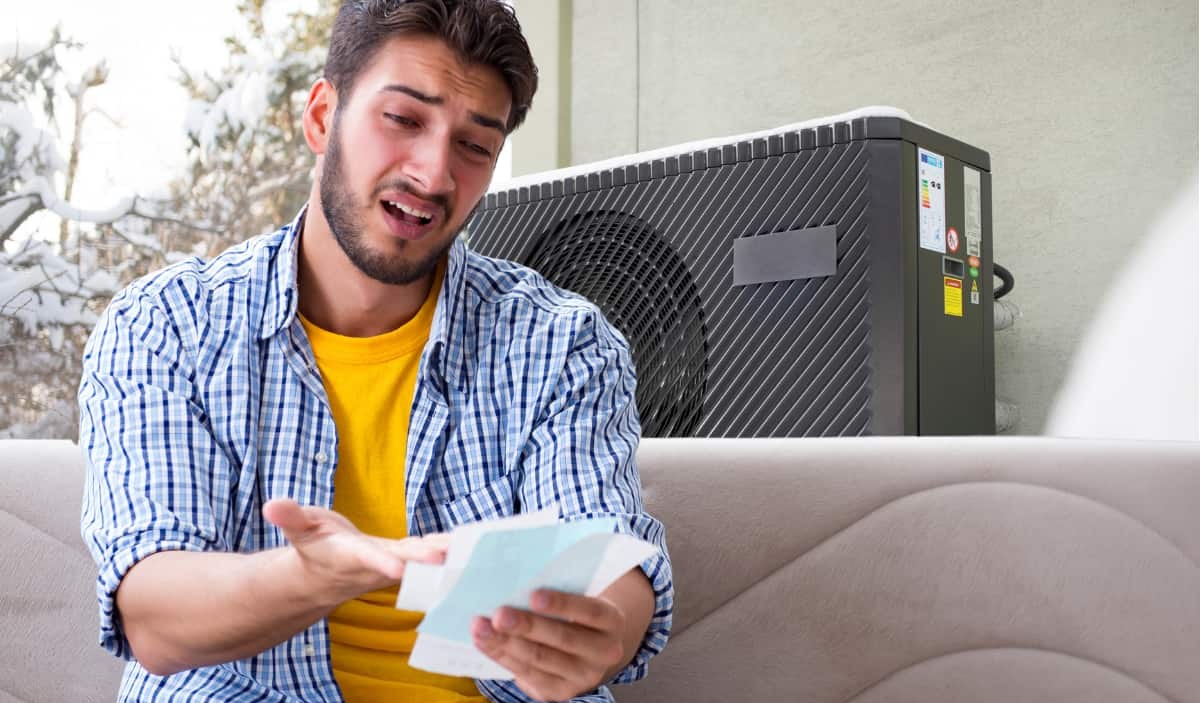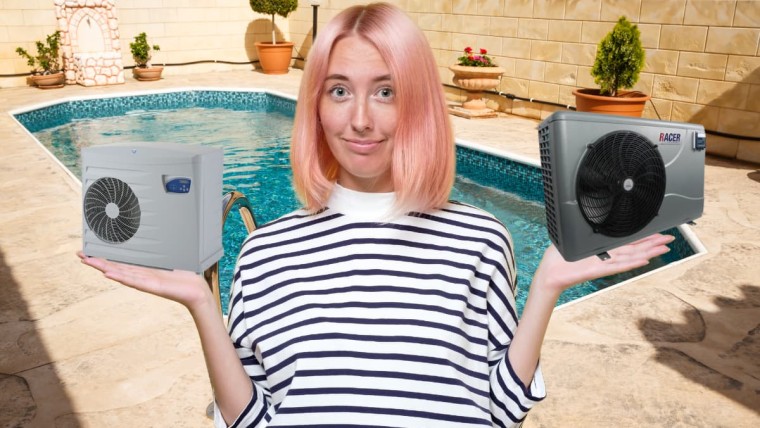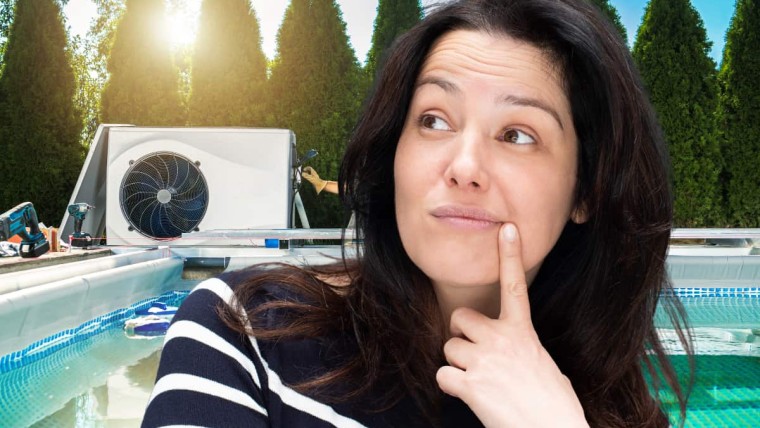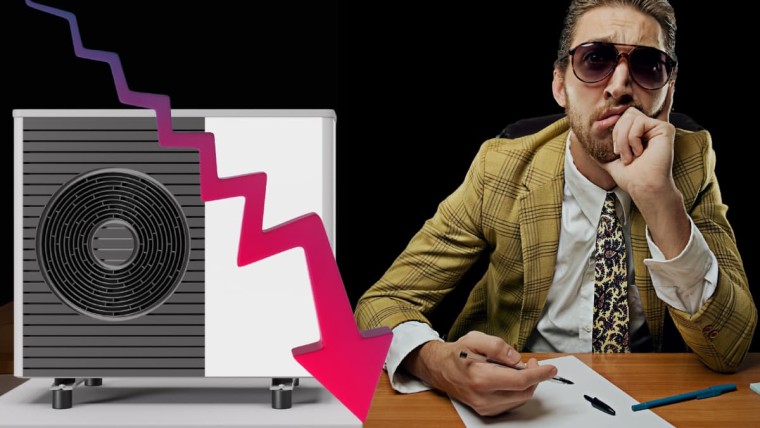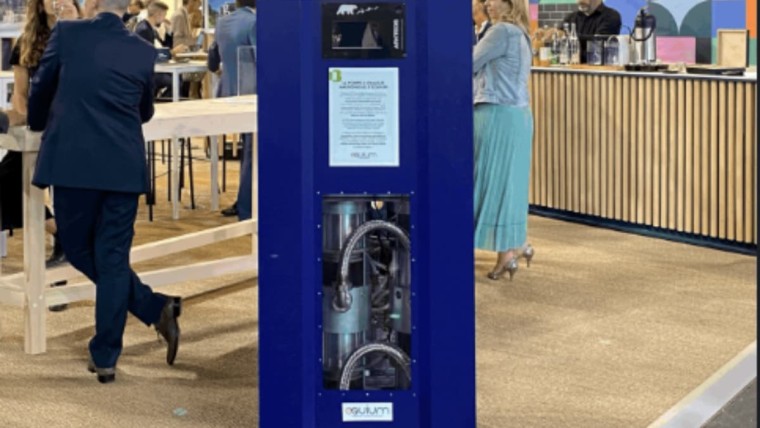The days are getting colder and colder, and with the onset of winter, temperatures are always a little closer to zero, depending on your region. Whether you've just bought the latest generation heat pump or are still hesitating to take the plunge and invest in environmentally-friendly heating, you're probably wondering whether the drop in temperatures has a significant influence on the consumption of a heat pump.
In this article, after looking at the various factors that influence the consumption of a heat pump, you'll have a clearer picture of the impact of winter on your electricity bill.
Yes, a heat pump consumes more electricity when it's cold. This is because the cold air outside contains fewer calories, forcing the compressor to work longer to capture a given amount of energy.
Factors influencing air-to-water heat pump consumption
There are two main factors that influence heat pump consumption in cold weather:
- The outside temperature
- The quality of your home's insulation
Outdoor temperature and COP
Air-to-water heat pumps capture energy from the outside air. In winter, when the air is colder, the heat pump has to work harder to accumulate a given amount of energy. This means a longer-running compressor, and therefore more electricity consumption.
This concept is characterized by the COP coefficient of performance. In winter, when it's cold, the COP is lower, often below 3 for air-water models. This coefficient represents the heating energy produced, compared with the electrical energy expended to produce it. The lower the COP, the more electricity you need to heat.
At temperatures below 0°C, the COP of air-to-water heat pumps is often below 3, and rapidly approaches 2, depending on the hot water temperature you need to produce (radiators 55°C, underfloor heating 35°C).
What's more, some heat pumps are equipped with an electric resistance that kicks in when the temperature drops too low, to assist the thermodynamic system. This resistance, of course, greatly increases your consumption. It's best to avoid it, even if it means accepting slightly lower temperatures in the house. Talk to your installer about the conditions for triggering this resistance.
If you notice a sharp rise in consumption, have your system checked to make sure it is correctly sized, or that a poorly wired electrical resistance is not running continuously.
Insulation quality
Cold outside air causes heat to escape through your walls and roof.
This means that the better your insulation, the less heat will be lost, and the less you'll have to heat an environment that has lost comfort as a result.
If your home is like a thermal sieve, your heating system will run continuously to combat the consequent loss of heat, and your consumption will rise sharply as a result.
But since you have a heat pump, or are considering buying one, it's probably the case that your insulation is no longer a major problem for you. As a result, only the outside temperature is a cause of increased consumption when it's cold.
Different heat pump installations
To simplify, we can consider two cases:
- You have underfloor heating and good insulation in a modern home. Your heat pump needs to heat the water in the network to a relatively low temperature, often 35°C, for which its COP is often excellent, close to 4. As a result, your heat pump consumes a little more than in mid-season, but is still ideal for this type of heating. This is what you should aim for when renovating your home.
- You've still got radiators that need a temperature of 45°C or 55°C, and your insulation isn't exactly state-of-the-art. So your heat pump is likely to pump much more current than usual. In some cases, if it's badly dimensioned, it can almost be like an electric heater, unfortunately. (COP close to 1.5).
How can I reduce heat pump consumption in cold weather?
Consider setting your control to a room temperature of 19°C to reduce the wall of calories the machine has to fight to heat your home. This will reduce the time your machine has to run with a low COP.
Before winter, if possible, consider insulating your attic, walls, facade or floor, if you haven't already done so. This will enable your home to retain heat longer, and your heat pump to run less frequently, thus pumping less electricity.

Julien G.
Juliena mechanical engineering graduate and specialist in climate engineering since 2009, has become a writer specializing in renewable energies, with expertise in heat pumps and photovoltaic solar panels for individual housing.
See all articles by this author
